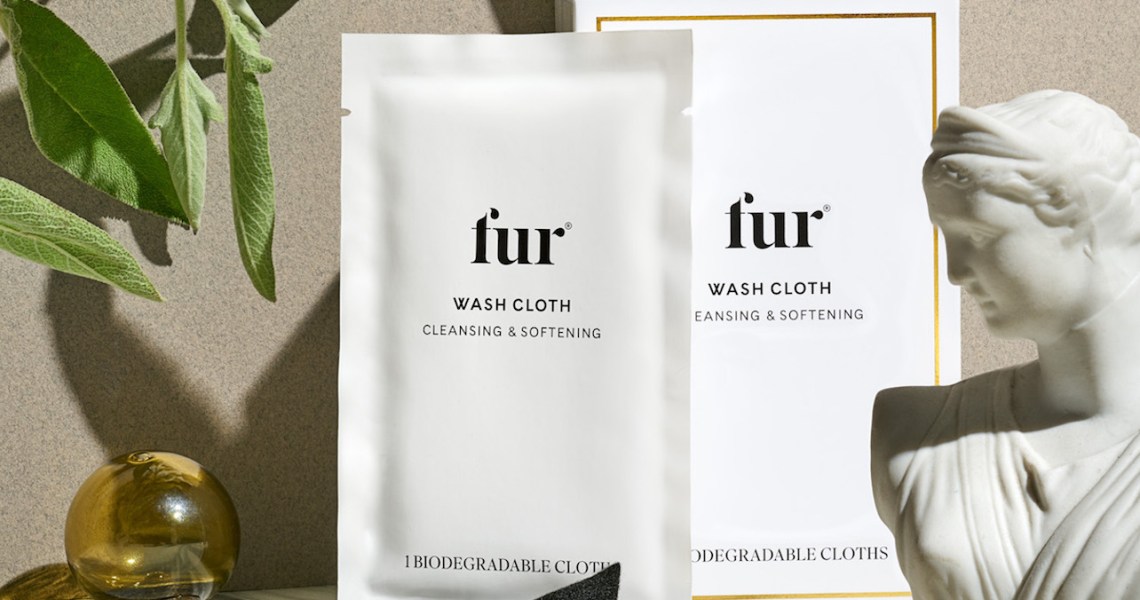As the lines between beauty and wellness continue to blur, Ulta Beauty is making moves to offer deeper assortments of both to its customer. The retailer’s latest brand addition is Fur, an indie body-hair company behind a line of pubic-hair oils, ingrown-hair concentrates and stubble cream, all designed for customers’ nether regions. On March 3, 3-year-old Fur will land on Ulta.com, and a roll-out to 347 stores nationwide is planned for May.
“We’ve seen increased interest in the wellness and self-care categories, and know many of our guests appreciate quality products that promote beauty holistically,” said Paul Desiderioscioli, vp of merchandising at Ulta Beauty. “Early on, we identified the opportunity within our assortment to add a body-care brand that would fulfill a white space, and we knew Fur was the perfect fit.”
Fur has a unique positioning among Ulta’s existing assortment, as it promotes care of pubic-hair versus removal of hair, which is the focus of wax brands Sally Hansen, Parissa and Nads Natural, which the retailer also carries. Fur is considered one of the first brands that spoke to the the rising consumer preoccupation with sexual wellness. More recently, other brands are also recognizing the potential, like Nécessaire with its Sex Gel (lubricant), DeoDoc, which sells intimate washes and deodorant-like sprays for women, and Lola, which was once considered a tampon brand but now also sells condoms and lube.
Fur co-founder Laura Schubert said that convergence of beauty and wellness has helped the brand gain attention. “When we launched in 2016, a lot of retailers asked us, ‘Where is this going to sit in my store?’ which was a big hurdle. But now, as wellness sections are getting more attention and space in stores, retailers see the opportunity for a product like ours and see us as a category builder,” she said.
Ulta has picked up Fur’s four-piece lineup, plus collaborated on two exclusive products: a Fur Wash Cloth for sensitive body parts and Fur Ingrown Eliminator Wipes, retailing for $22 and $18, respectfully. Fur’s pre-Ulta range started at $28 and went as high as $135. Fur’s lineup will sit alongside influencer Katie Sturino’s brand Megababe and skin-care brand Truly Organic in the retailer’s body-care section. Megababe’s Megafresh feminine wipes were the first sex products Ulta carried, starting in fall 2018.
Ulta has made waves with its overall body-care assortment outside of sexual wellness. In spring 2017, Ulta launched elevated, freestanding fixtures (which light up and feature eye-catching graphics) for bath products, which are now in 450 doors. More stores will be added throughout 2019, as Ulta opens more stores and renovates older ones. Nest Fragrances, The Body Shop, Rituals and Thymes are prominent in those fixtures.
Though Fur was direct-to-consumer first, with the additional store distribution, the brand is doubling its physical footprint. It is currently in 300 retail doors, from boutique retailers like Shen Beauty to more forward-thinking lifestyle players like Free People and Urban Outfitters, as well as Nordstrom. In 2018, Fur increased sales by 400 percent.
Fur co-founder Lillian Tung expects the brand’s current split of sales of 50 percent DTC and 50 percent wholesale to shift with the Ulta partnership.
“We are doubling doors, but we are also getting a much broader reach, since Ulta is about being everywhere and serving women and men all over the country,” she said. “They want to bring this category to the mainstream audience and for it to be welcoming. It has long-term implications.”
Seventy percent of Fur’s customer base is women between 18 and 34 years old, but men account for 30 percent, said Tung, which she credits to the brand’s gender-neutral product, packaging and positioning. According to Fur, the brand will also be available at NetAPorter.com in mid-March and is on track to go into 800 Ulta doors following the May in-store launch.
Fur will be messaging its new Ulta partnership via its email customer base of 100,000 subscribers, as well as on Instagram, where the brand has nearly 30,000 followers. “We want to use our current channels, where we know we have loyalty to create interest for the brand,” said Tung. “We aren’t a one-off buy kind of brand. We want to have a continued conversation with our customer.”




